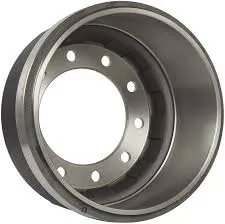
-
 Afrikaans
Afrikaans -
 Albanian
Albanian -
 Amharic
Amharic -
 Arabic
Arabic -
 Armenian
Armenian -
 Azerbaijani
Azerbaijani -
 Basque
Basque -
 Belarusian
Belarusian -
 Bengali
Bengali -
 Bosnian
Bosnian -
 Bulgarian
Bulgarian -
 Catalan
Catalan -
 Cebuano
Cebuano -
 Corsican
Corsican -
 Croatian
Croatian -
 Czech
Czech -
 Danish
Danish -
 Dutch
Dutch -
 inglés
inglés -
 Esperanto
Esperanto -
 Estonian
Estonian -
 Finnish
Finnish -
 French
French -
 Frisian
Frisian -
 Galician
Galician -
 Georgian
Georgian -
 German
German -
 Greek
Greek -
 Gujarati
Gujarati -
 Haitian Creole
Haitian Creole -
 hausa
hausa -
 hawaiian
hawaiian -
 Hebrew
Hebrew -
 Hindi
Hindi -
 Miao
Miao -
 Hungarian
Hungarian -
 Icelandic
Icelandic -
 igbo
igbo -
 Indonesian
Indonesian -
 irish
irish -
 Italian
Italian -
 Japanese
Japanese -
 Javanese
Javanese -
 Kannada
Kannada -
 kazakh
kazakh -
 Khmer
Khmer -
 Rwandese
Rwandese -
 Korean
Korean -
 Kurdish
Kurdish -
 Kyrgyz
Kyrgyz -
 Lao
Lao -
 Latin
Latin -
 Latvian
Latvian -
 Lithuanian
Lithuanian -
 Luxembourgish
Luxembourgish -
 Macedonian
Macedonian -
 Malgashi
Malgashi -
 Malay
Malay -
 Malayalam
Malayalam -
 Maltese
Maltese -
 Maori
Maori -
 Marathi
Marathi -
 Mongolian
Mongolian -
 Myanmar
Myanmar -
 Nepali
Nepali -
 Norwegian
Norwegian -
 Norwegian
Norwegian -
 Occitan
Occitan -
 Pashto
Pashto -
 Persian
Persian -
 Polish
Polish -
 Portuguese
Portuguese -
 Punjabi
Punjabi -
 Romanian
Romanian -
 Russian
Russian -
 Samoan
Samoan -
 Scottish Gaelic
Scottish Gaelic -
 Serbian
Serbian -
 Sesotho
Sesotho -
 Shona
Shona -
 Sindhi
Sindhi -
 Sinhala
Sinhala -
 Slovak
Slovak -
 Slovenian
Slovenian -
 Somali
Somali -
 Spanish
Spanish -
 Sundanese
Sundanese -
 Swahili
Swahili -
 Swedish
Swedish -
 Tagalog
Tagalog -
 Tajik
Tajik -
 Tamil
Tamil -
 Tatar
Tatar -
 Telugu
Telugu -
 Thai
Thai -
 Turkish
Turkish -
 Turkmen
Turkmen -
 Ukrainian
Ukrainian -
 Urdu
Urdu -
 Uighur
Uighur -
 Uzbek
Uzbek -
 Vietnamese
Vietnamese -
 Welsh
Welsh -
 Bantu
Bantu -
 Yiddish
Yiddish -
 Yoruba
Yoruba -
 Zulu
Zulu
drum versus disc brakes
Drum vs. Disc Brakes Understanding the Differences and Their Implications
When it comes to vehicle braking systems, the debate between drum and disc brakes is a significant topic of discussion among automotive enthusiasts and professionals alike. Each type has its own advantages and disadvantages, making them suitable for different applications. Understanding these differences is crucial for anyone looking to improve their understanding of vehicle dynamics and maintenance.
Basic Construction and Operation
Drum brakes consist of a cylindrical drum that rotates with the wheel, and brake shoes that press against the inner surface of the drum to create friction, thereby slowing down the vehicle. The design is relatively simple and largely unchanged since its inception in the early 20th century. On the other hand, disc brakes feature a flat, vented disc that spins with the wheel and calipers that house brake pads. When the brake pedal is pressed, hydraulic pressure forces the pads against the disc, generating the necessary friction to slow down or halt the vehicle.
Performance Characteristics
One of the most notable differences between drum and disc brakes is their performance under extreme conditions. Disc brakes are typically better at dissipating heat, which means they maintain their effectiveness over prolonged use, such as during high-speed driving or extended braking periods. This is partly due to their design, which allows for better airflow and cooling. In contrast, drum brakes can overheat and lead to brake fade, where the braking power diminishes due to excessive heat buildup.
Additionally, disc brakes offer superior stopping power and shorter stopping distances compared to drum brakes, especially in modern vehicles that incorporate advanced technology. They respond more quickly to brake pedal input, providing enhanced control and safety features, making them the preferred choice for performance and luxury vehicles.
drum versus disc brakes

Maintenance and Durability
From a maintenance perspective, drum brakes are generally less expensive to manufacture and, in some cases, can last longer than disc brakes due to their enclosed design, which protects them from dirt and debris. However, they are more complicated to service. Inspecting and replacing brake shoes might require a lot more effort compared to the straightforward process of changing brake pads in disc systems.
On the flip side, disc brakes are easier to maintain and replace, leading to a more straightforward repair process in case of wear and tear. While they might come with higher upfront costs, the long-term savings can be significant, particularly in terms of labor and service time.
Applications and Trends
Historically, drum brakes were prevalent in older vehicles and are still used in some economy cars and trucks for the rear wheels. However, the automotive industry is steadily shifting towards disc brakes due to their performance benefits, safety features, and advancements in technology. Most modern vehicles, including sedans, SUVs, and sports cars, now utilize disc brakes on all four wheels, emphasizing the trend toward improved braking capabilities.
Conclusion
In conclusion, the choice between drum and disc brakes ultimately depends on specific needs, vehicle type, and usage scenarios. While drum brakes offer a reliable and cost-effective solution for certain applications, disc brakes lead in performance, maintenance, and safety. As automotive technology advances, understanding these differences will empower consumers and enthusiasts alike to make informed decisions regarding their vehicles. Whether you drive a daily commuter or a high-performance sports car, knowing the strengths and weaknesses of each braking system is essential for enhancing vehicle safety and functionality.
-
Rear Drum Brakes Maintenance TipsNovasAug.04,2025
-
Key Components Affecting Brake Drum FunctionNovasAug.04,2025
-
Important Inspection for Truck Drum BrakeNovasAug.04,2025
-
How to Prepare for Changing Rear Drum BrakesNovasAug.04,2025
-
Essential Tools for Cleaning Drum Brakes ProperlyNovasAug.04,2025
-
Brake Drum Function GuideNovasAug.04,2025
-
Safety Features of Red Brake DrumsNovasAug.01,2025
